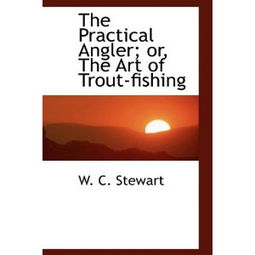Content:
Introduction: Fishing, an ancient pastime that has been cherished by countless individuals across the globe, is not just a leisure activity but an art form. To truly excel in this serene pursuit, one must possess a keen understanding of the fishing techniques and methods that can make the difference between a successful day on the water and a mere attempt. In this comprehensive guide, we will delve into the essential skills and strategies that every angler should know to enhance their fishing experience.
Choosing the Right Equipment: The foundation of successful fishing lies in selecting the appropriate equipment. Here are some key factors to consider:
a. Rod and Reel: The choice of rod and reel depends on the type of fishing you plan to do. For freshwater fishing, a spinning rod and reel are generally suitable, while a baitcasting outfit is ideal for saltwater or heavier lures.
b. Line: The type of line you use can significantly impact your fishing success. Monofilament is versatile and durable, while fluorocarbon is nearly invisible underwater and offers excellent sensitivity.
c. Lures and Baits: Depending on the fish species and the environment, you'll need to choose the right lures or baits. Live bait, artificial lures, and natural baits like worms and insects all have their place in the angler's arsenal.
Understanding Fish Behavior: To catch fish, you must first understand their behavior. Here are some key points to consider:
a. Seasonal Patterns: Fish often migrate or change their feeding patterns with the seasons. Research the seasonal habits of the fish you're targeting to increase your chances of success.
b. Water Temperature: Fish are cold-blooded and their metabolism is influenced by water temperature. Targeting fish during the times when water temperatures are most favorable can boost your success rate.
c. Cover and Structure: Fish often seek cover or structure to hide from predators and to find food. Look for areas like rocks, logs, weeds, and drop-offs that may harbor fish.
Casting Techniques: Proper casting is crucial for reaching your target and presenting your bait or lure effectively. Here are some casting techniques to master:
a. Basic Casting: Learn the basic overhead, sidearm, and roll casts to cover different distances and angles.
b. Casting Drills: Practice casting drills to improve your accuracy and consistency. Drills like the pendulum cast and the figure-eight cast can be particularly helpful.
c. Distance Casting: To cast long distances, use a combination of power and precision. Adjust your grip, stance, and casting motion to achieve the desired distance.
Bait Presentation: The way you present your bait or lure can make or break your fishing success. Here are some key tips:
a. Natural Movements: Mimic the natural movements of the fish's prey. For example, if you're fishing for bass, use a lure that can swim like a small fish.

b. Patience: Allow your bait or lure to sink to the desired depth before starting your retrieve. This gives the fish time to detect and investigate your offering.
c. Sensitivity: Pay attention to the subtle movements of your bait. Even the smallest nibble can be a sign of a fish interested in your offering.
Reading the Water: Being able to read the water is a critical skill for any angler. Here's how to do it:
a. Observe the Surface: Look for signs of fish activity on the water's surface, such as rises, splashes, or boils.
b. Look for Structure: Identify areas of cover or structure that may hold fish. Use your eyes and binoculars to spot these features.
c. Listen: Pay attention to the sounds of the water. The absence of noise can indicate that fish are present and are not disturbed.
Safety and Etiquette: Always prioritize safety and adhere to fishing etiquette:
a. Safety Gear: Wear appropriate clothing and footwear, and carry safety gear like a first aid kit and a floatation device.
b. Leave No Trace: Practice responsible fishing by keeping the environment clean and minimizing your impact on the natural habitat.
Conclusion: Fishing is an activity that can be enjoyed by anglers of all skill levels. By mastering the techniques and methods outlined in this guide, you'll be well on your way to becoming a more proficient angler. Remember that fishing is not just about catching fish; it's about connecting with nature and the serenity it offers. With practice, patience, and a willingness to learn, you'll find that the art of fishing becomes more rewarding with each passing day. Happy fishing!












